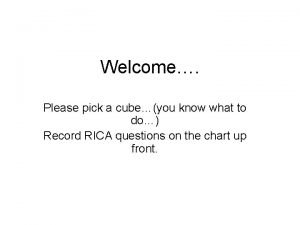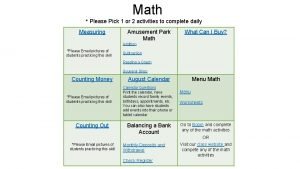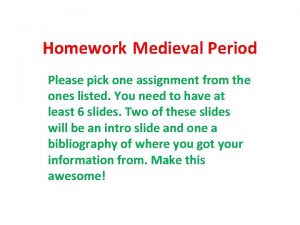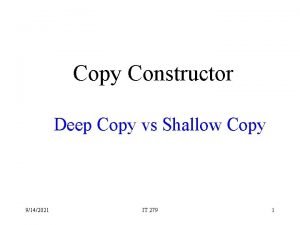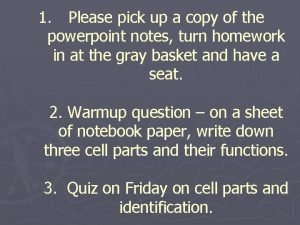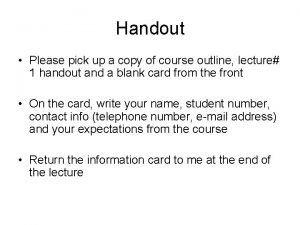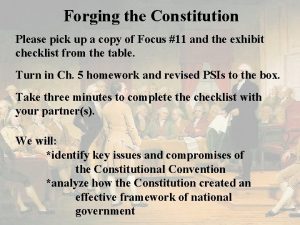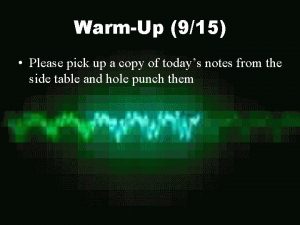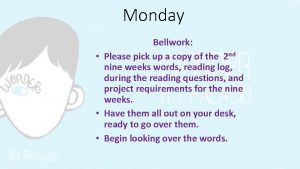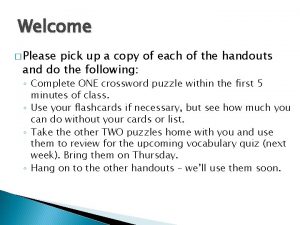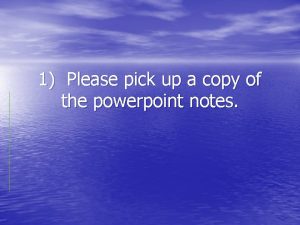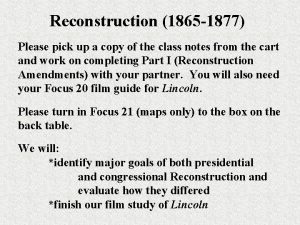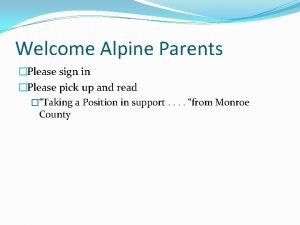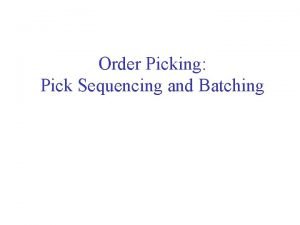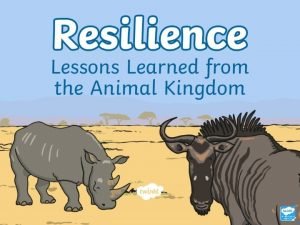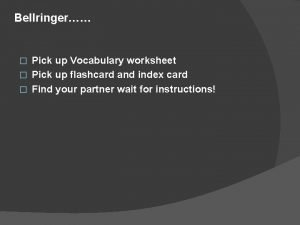l Please pick up a copy of the




















- Slides: 20

l Please pick up a copy of the powerpoint notes. l Place homework in the basket.

ADP and ATP

What Is ATP?

ATP stands for: 1. Adenosine Triphosphate

What is ATP? 2. ATP is the energy currency of all cells (including plants and animals). It supplies you with energy.

3. ATP is a type of nucleic acid (like DNA and RNA).

4. ATP contains high energy phosphate bonds that store and release energy.

Where does ATP come from? l ATP comes indirectly from the food that we eat. l Molecules of carbohydrates (glucose) and lipids are broken down through the process of cellular respiration to produce ATP.

An ATP Molecule is composed of the following: l. A Nitrogenous Base – Adenine l A Sugar – Ribose l Three phosphate groups

Chemical Structure of ATP Adenine Base 3 Phosphates Ribose Sugar

How Do We Get Energy From ATP?

ADP-ATP Cycle l Cells break phosphate bonds between the last two phosphate groups in a molecule of ATP as needed to supply energy for most cellular functions, when this happens a molecule of ADP (adenosine diphosphate) and a phosphate become available for reuse.

ADP-ATP Cycle When any of the phosphate bonds are broken or formed, energy is involved. l Energy is released each time a phosphate is removed from the molecule. l Energy is stored each time a phosphate attaches to the molecule.

ADP-ATP Cycle l To constantly supply the cell with energy, the ADP is recycled, creating more ATP which carries much more energy than ADP.

Steps in the ADP-ATP Cycle l To supply cells with energy, a “high energy” bond in ATP is broken. ADP is formed and a phosphate is released back into the cytoplasm. ATP ADP + phosphate + energy

Steps in the ADP-ATP Cycle l As the cell requires more energy, ADP becomes ATP when a free phosphate attaches to the ADP molecule. Then energy needed to create an ATP molecule is much less than the amount of energy produced when the bond is broken. ADP + phosphate + energy ATP

How is the bond broken? HYDROLYSIS (Adding H 2 O) Assisted by the enzyme ATPase. H 2 O

How Does That Happen? An Enzyme!

The ADP-ATP Cycle ATP-ase ATP Synthetase

How is ATP Re-Made? The reverse of the previous process occurs. Another Enzyme is used! ATP Synthase
 Pictionary quiz
Pictionary quiz Please pick one
Please pick one Please pick one
Please pick one Please pick one
Please pick one Please pick one
Please pick one Will you please be quiet please themes
Will you please be quiet please themes Chụp tư thế worms-breton
Chụp tư thế worms-breton ưu thế lai là gì
ưu thế lai là gì Hệ hô hấp
Hệ hô hấp Quá trình desamine hóa có thể tạo ra
Quá trình desamine hóa có thể tạo ra Tư thế ngồi viết
Tư thế ngồi viết Công thức tính thế năng
Công thức tính thế năng Thế nào là sự mỏi cơ
Thế nào là sự mỏi cơ Bổ thể
Bổ thể Phản ứng thế ankan
Phản ứng thế ankan Tư thế ngồi viết
Tư thế ngồi viết Thẻ vin
Thẻ vin Hát lên người ơi
Hát lên người ơi Một số thể thơ truyền thống
Một số thể thơ truyền thống Hươu thường đẻ mỗi lứa mấy con
Hươu thường đẻ mỗi lứa mấy con Từ ngữ thể hiện lòng nhân hậu
Từ ngữ thể hiện lòng nhân hậu

